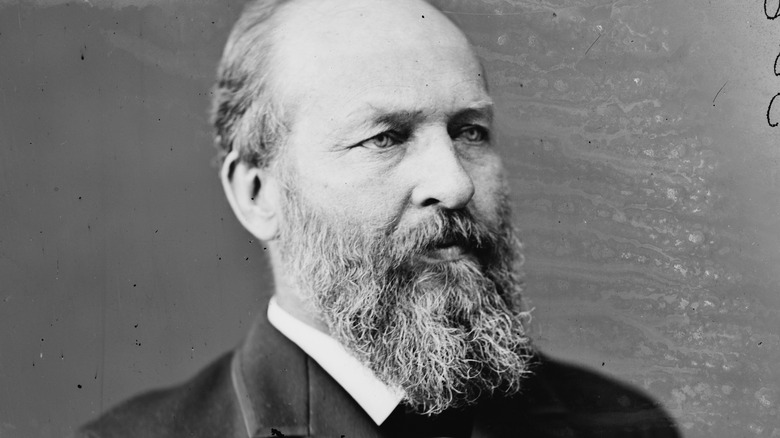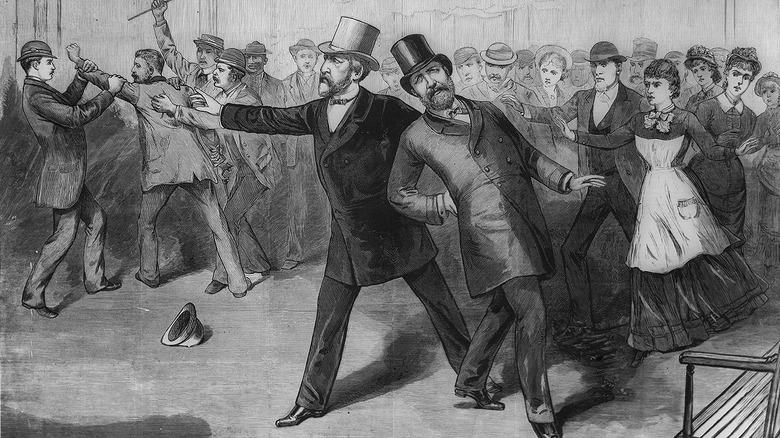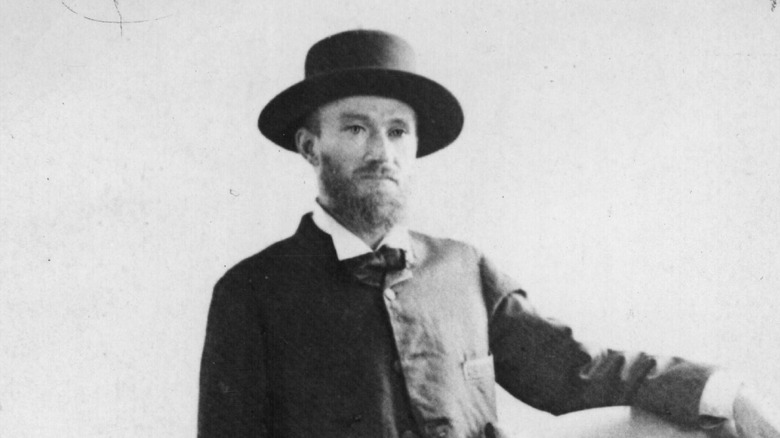President James Garfield's Gut-Wrenching Final Words
James Garfield, the 20th president of the United States, had an utterly unmemorable presidency — save for what happened at the end (but more on that later). A former Union General and longstanding Republican lawmaker, he was nominated for the Oval Office as a compromise, according to Britannica, and his campaign was remarkably low key. Nevertheless, he defeated his Democrat opponent, Scott Hancock, and was soon occupying the White House.
His presidency would last only six months, however, and for the final two of those months, he would be incapacitated (to put it mildly). That's because on July 2, 1881, a deranged individual named Charles Guiteau shot the president. A compounding series of medical mistakes would result in a period of agonizing pain lasting 80 days, during which the president clung to life, before he finally passed away (per National Park Service). History has given us at least two versions of his final words, and though they're different, they have the same content: Whatever he said as he took his last breath, it was a mention of the excruciating pain he was in at the time.
James Garfield Died In Excruciating Pain
On the day he was shot, according to Britannica, Garfield was leaving Washington for a vacation in New England. Guiteau, who knew of Garfield's plans, waited for him at the train station, and when the assassin had his chance, he fired two bullets into the president. One merely grazed his arm, the other went through his back and into his spinal column.
Garfield's ordeal was just beginning. The bullet wound wasn't immediately fatal, but the haphazard state of medical care in those days, combined with the lack of anesthesia, meant that Garfield's final days were spent in agonizing pain. Over the next 80 days, according to PBS, doctors would dig around inside his body with their bare hands, increasing his pain and, of course, contributing to infection.
On September 19, 1881, Garfield's suffering came to an end. According to the Free Library of Philadelphia, he begged his chief of staff, David Swaim, for relief. "Oh Swaim, there is a pain here. Swaim, can't you stop this? Oh, oh, Swaim," he supposedly cried out. However, PBS says that his last words, though equally heartbreaking, were, "This pain, this pain."
The Aftermath
Garfield's assassin, Charles Guiteau (pictured above), mounted something of a defense for his crimes by saying that it was the doctors who killed Garfield; he (Guiteau) had "just shot him," as PBS notes. That failed to convince a jury, and Guiteau was hanged on June 30, 1882, according to the National Park Service.
Garfield was the second president to die (albeit indirectly) from an assassin's bullet, the first having been Abraham Lincoln a decade and a half earlier. This incident resulted in a shift in the way presidents are protected; as Britannica notes, prior to the Garfield assassination, it wasn't uncommon for presidents to walk around unguarded, their movements and plans published in the newspapers.
The assassination also marked a shift in the way that Americans view the presidency and the president. Garfield's presidency was brief and unremarkable compared to Lincoln's, but his funeral and the national mourning were said to be greater than that of Lincoln. This marked the beginning of America's collective equating of the president to a celebrity.


